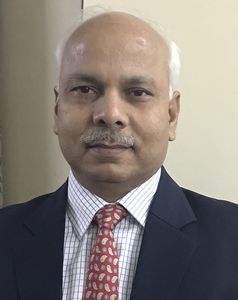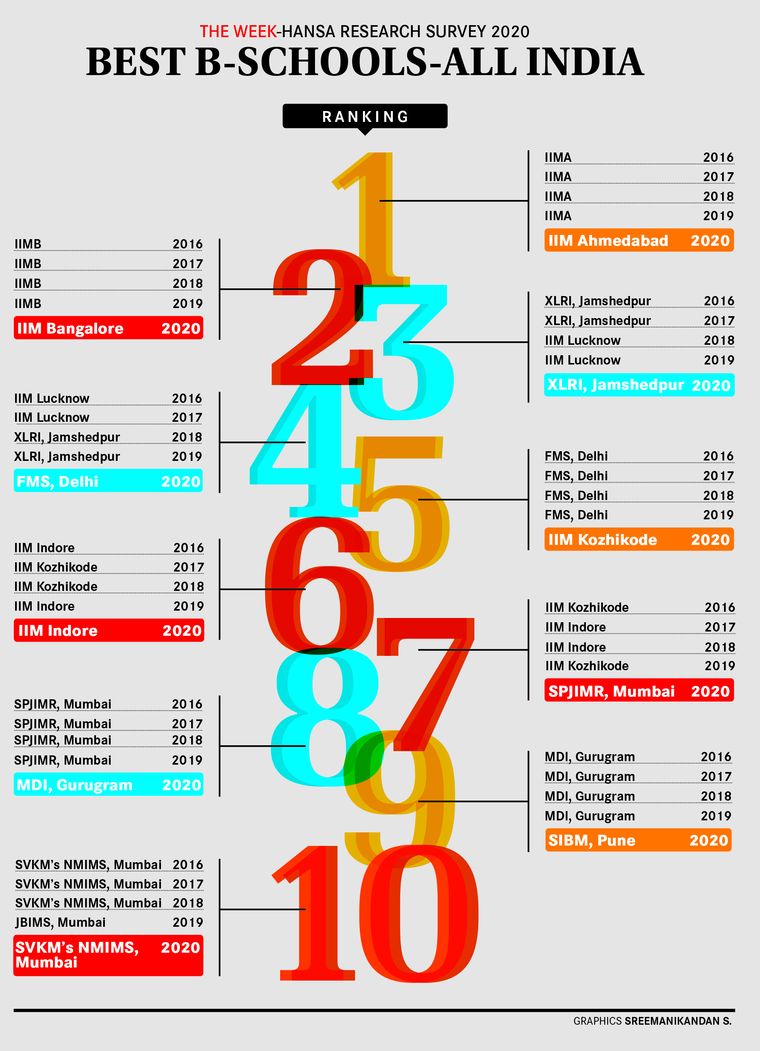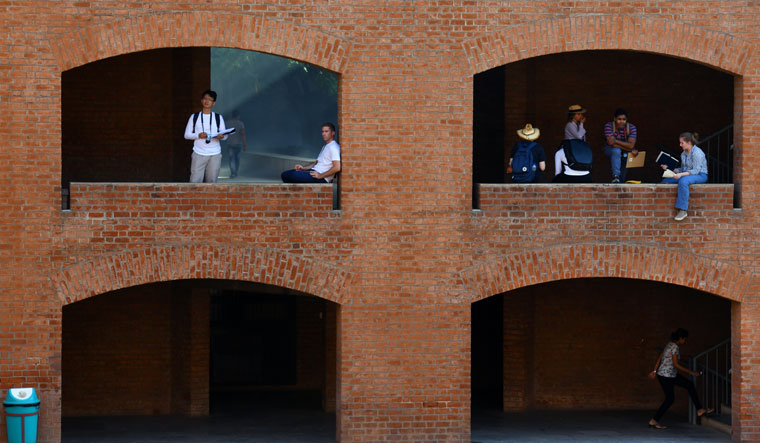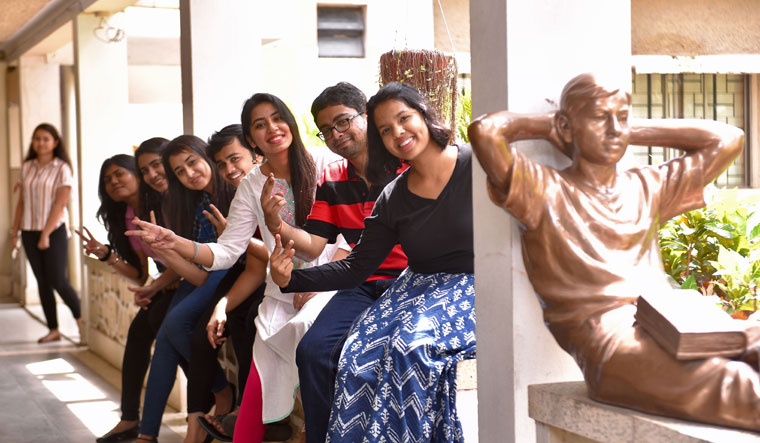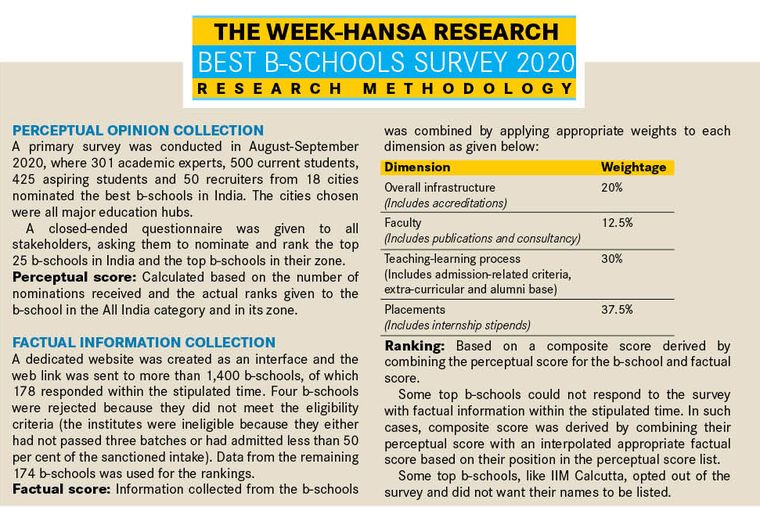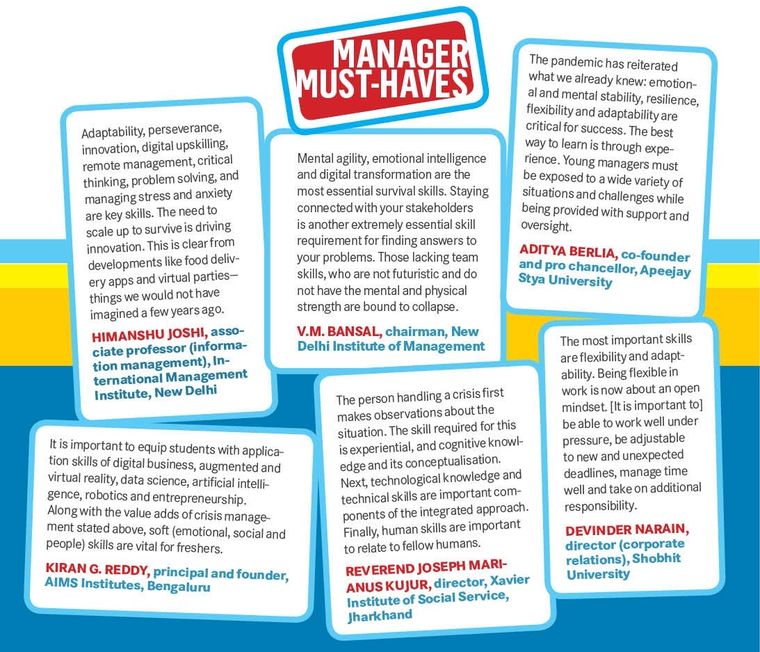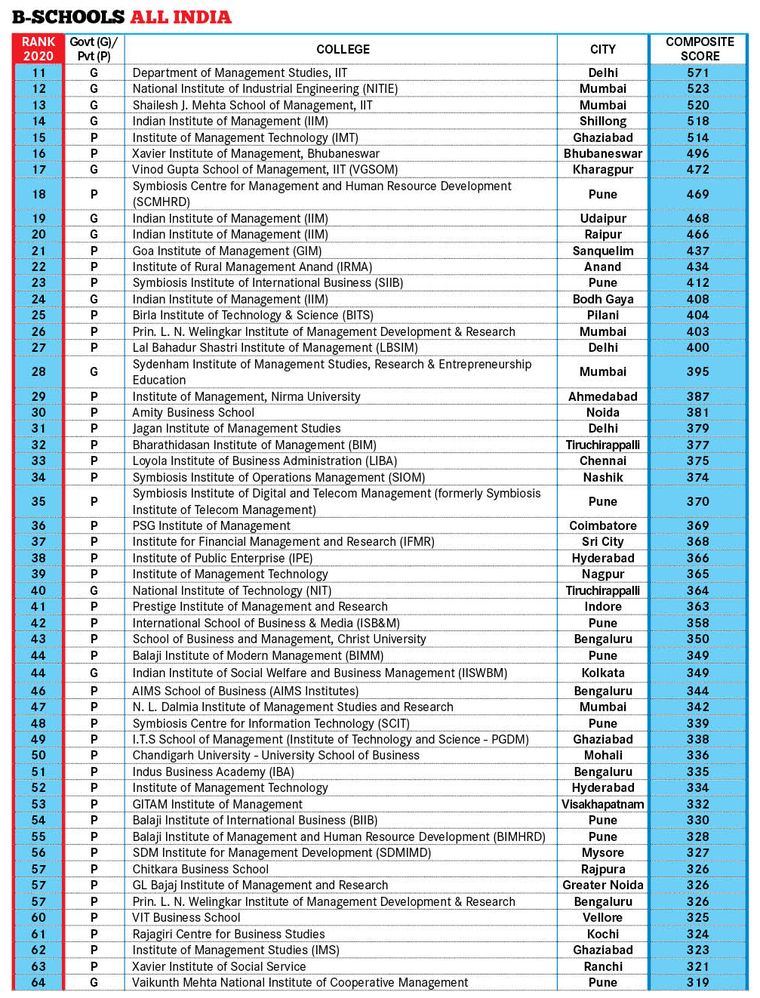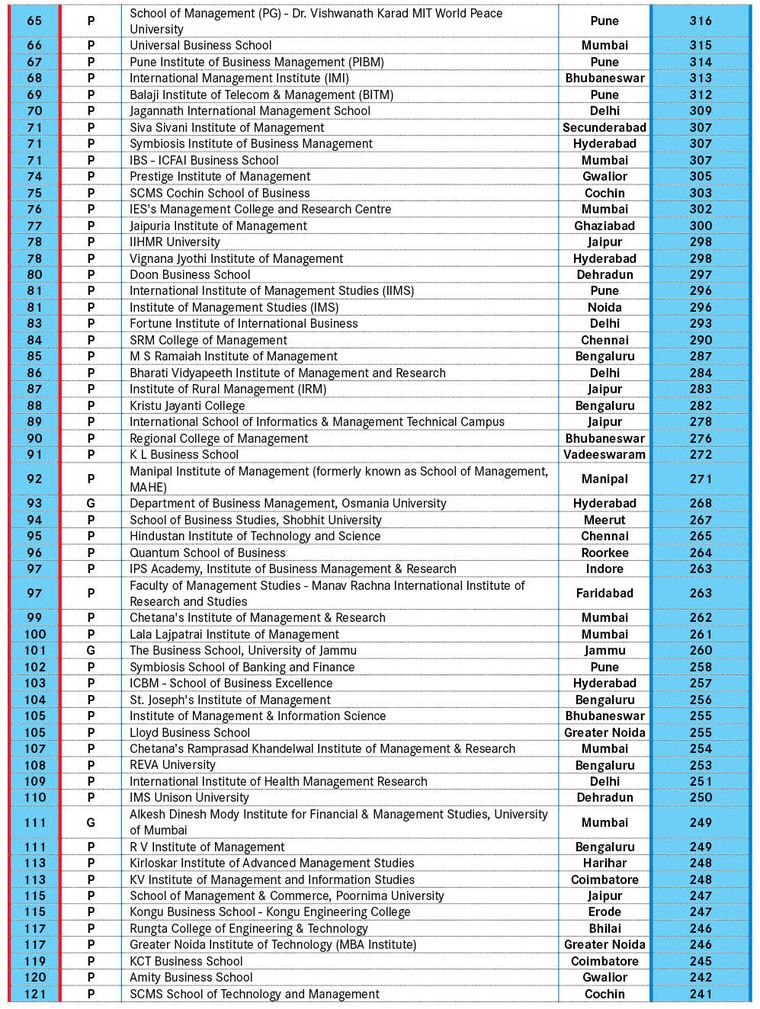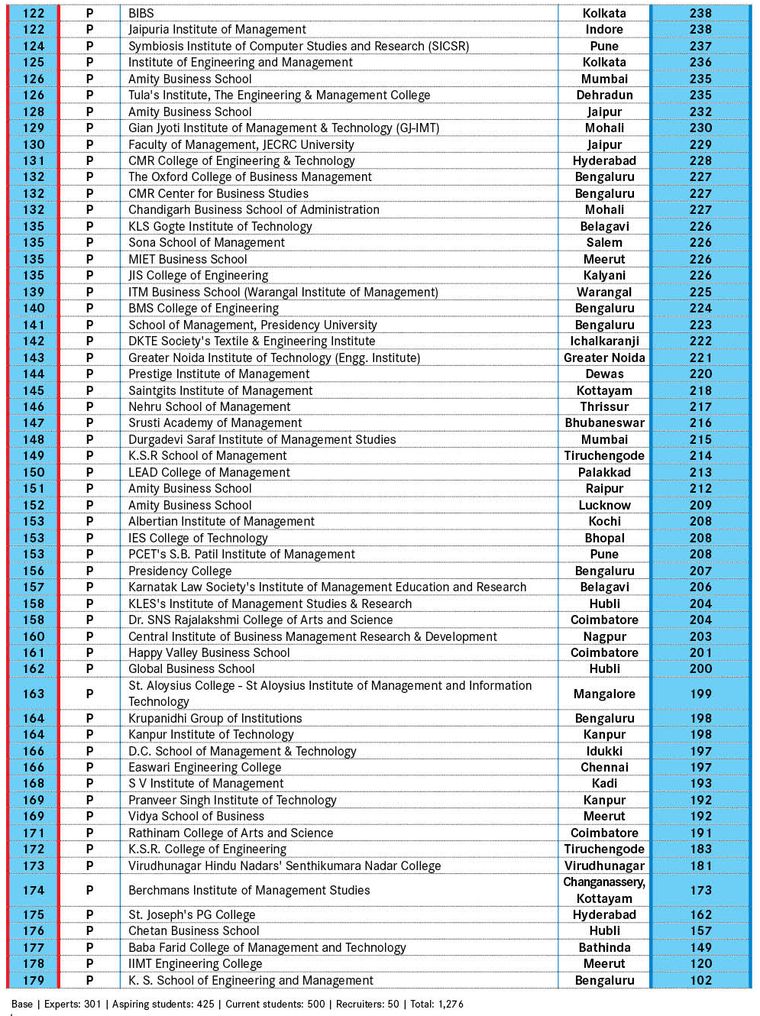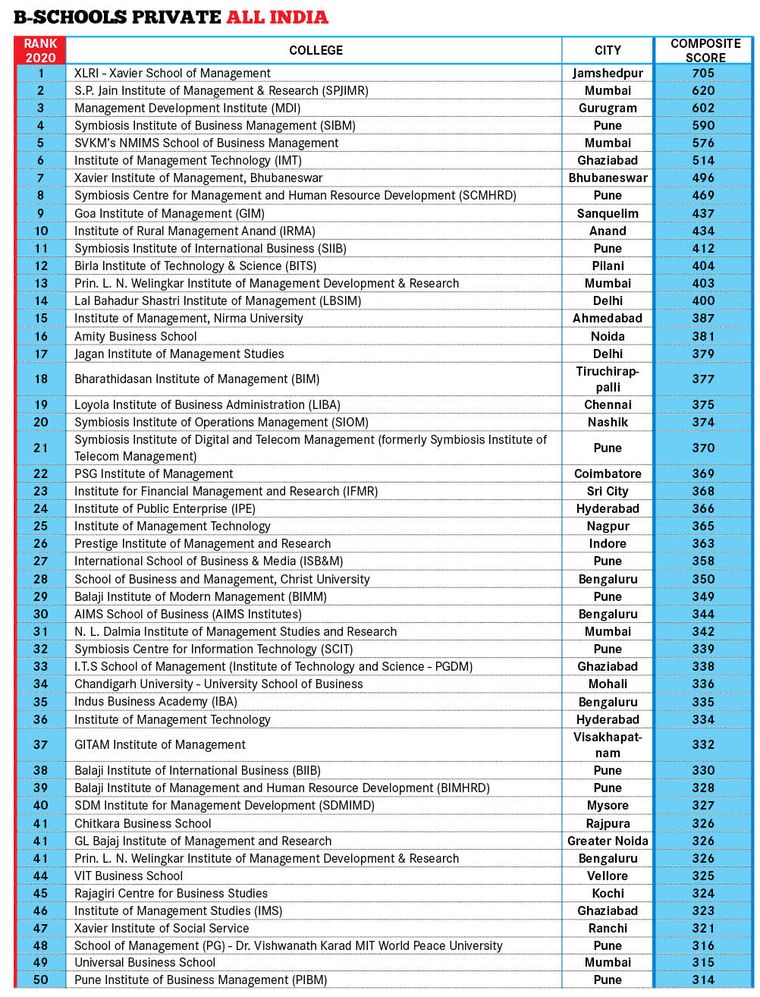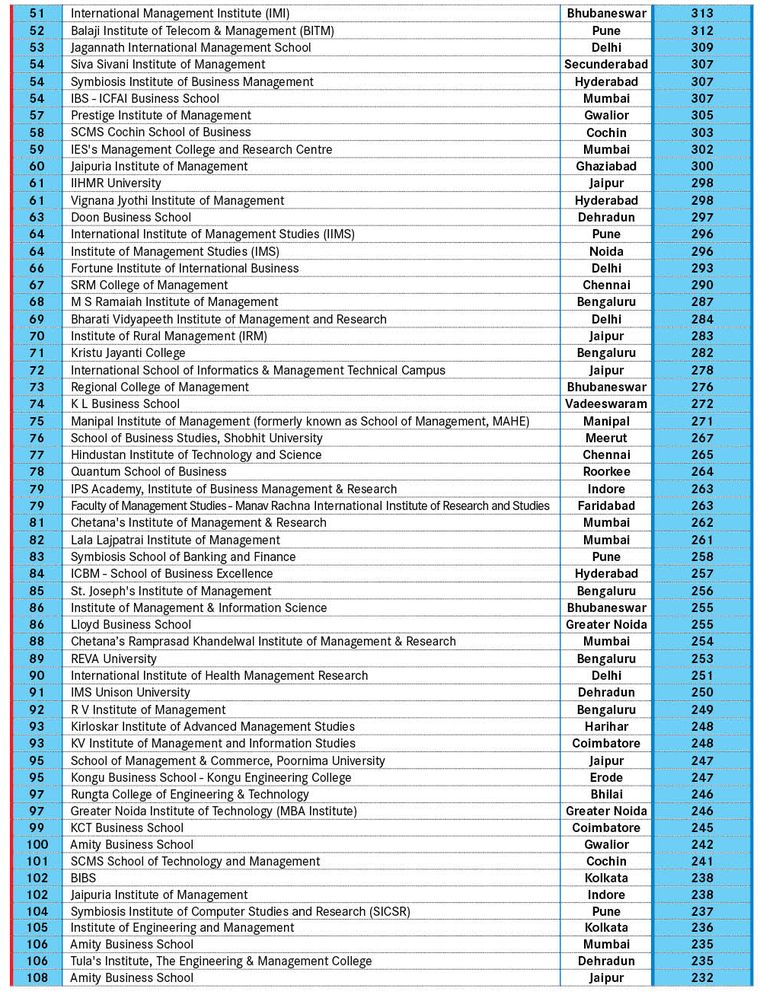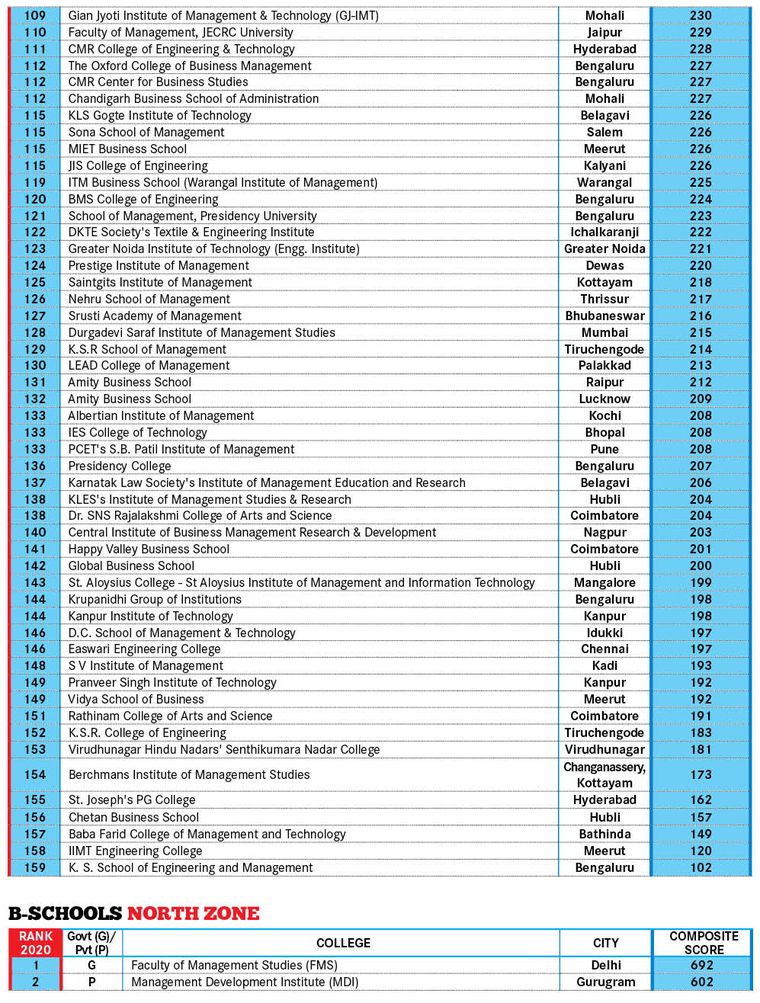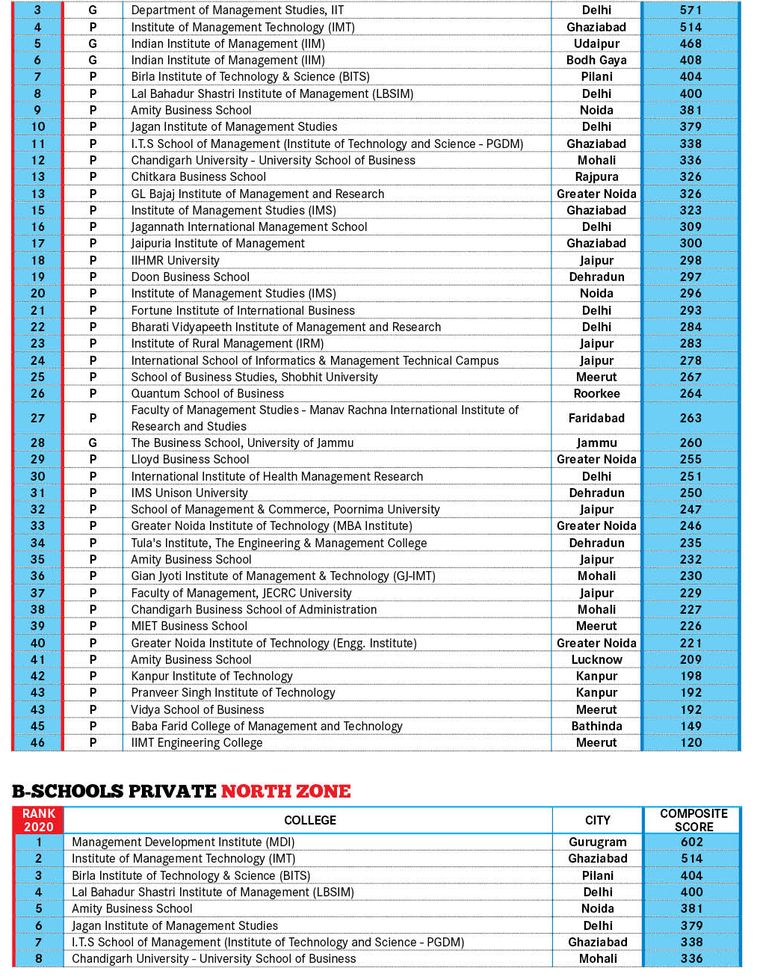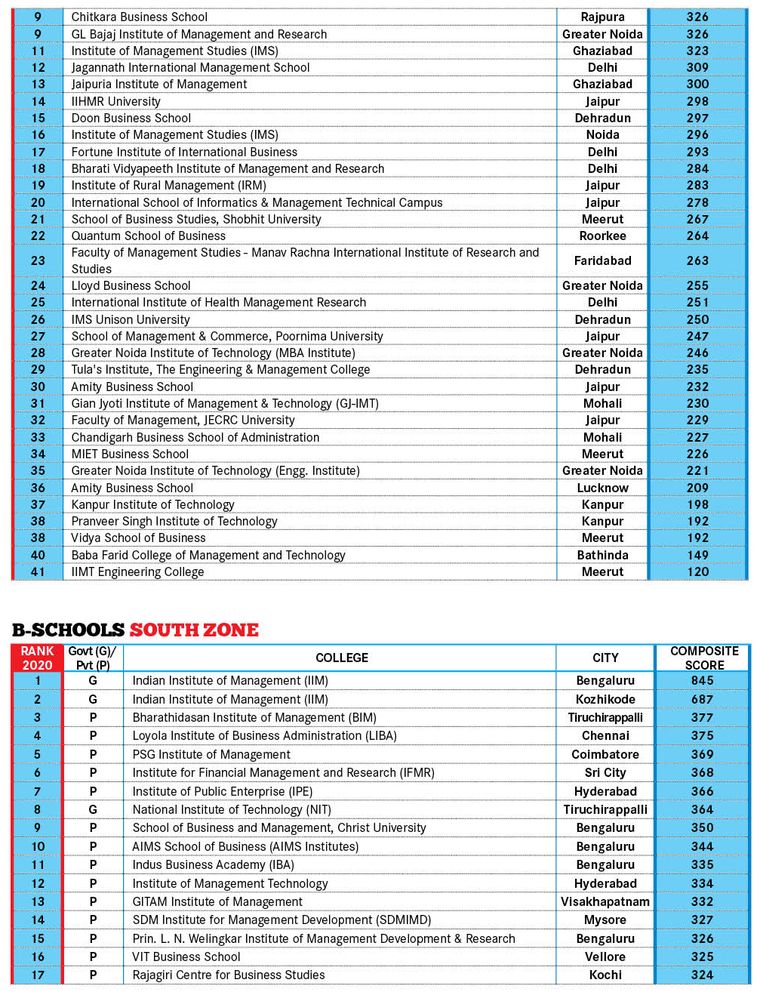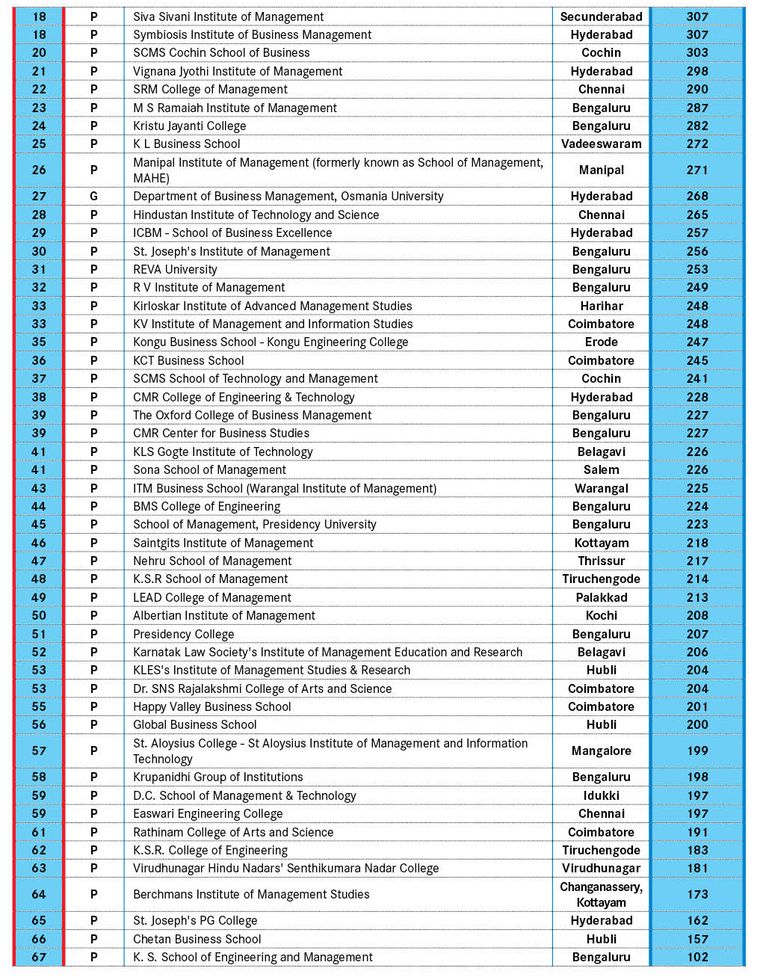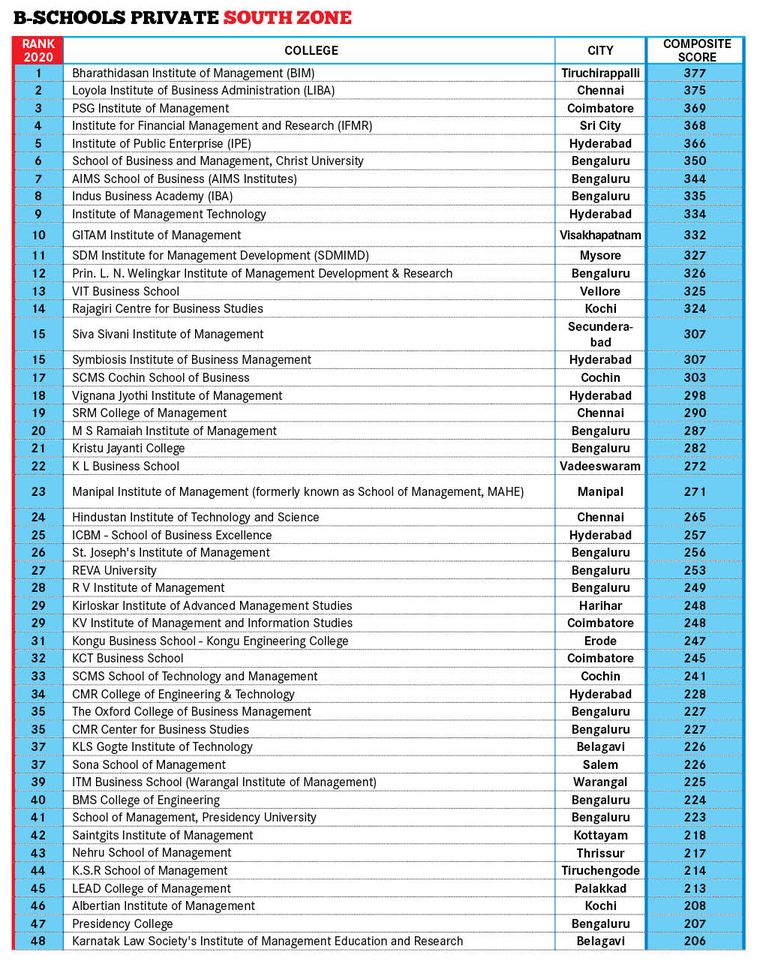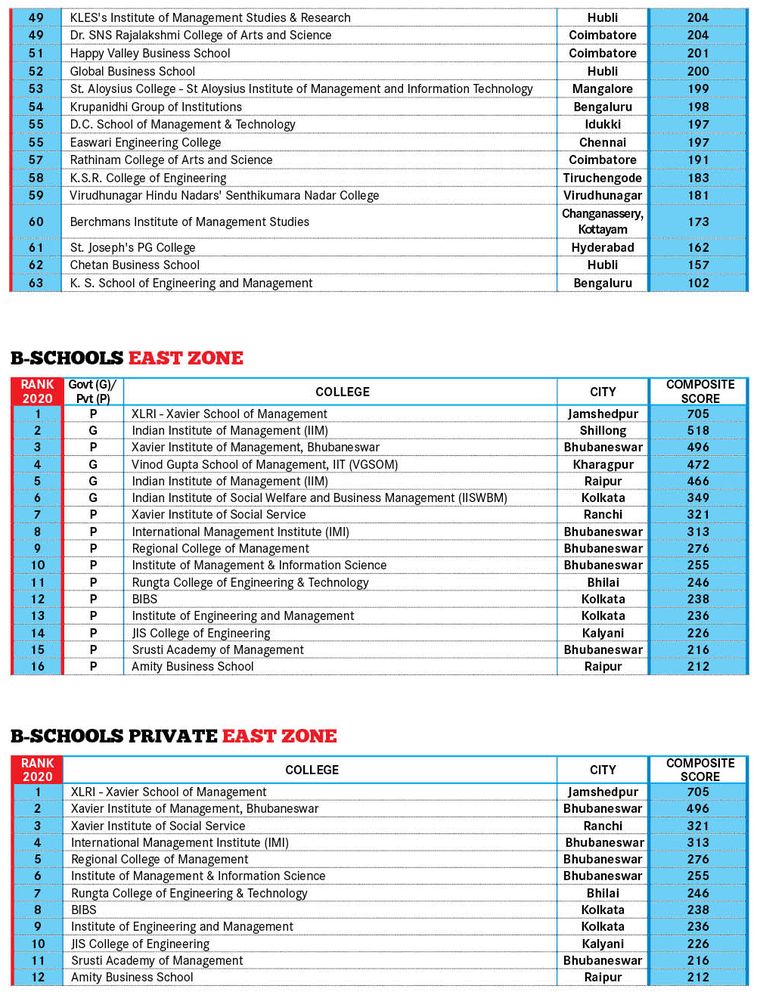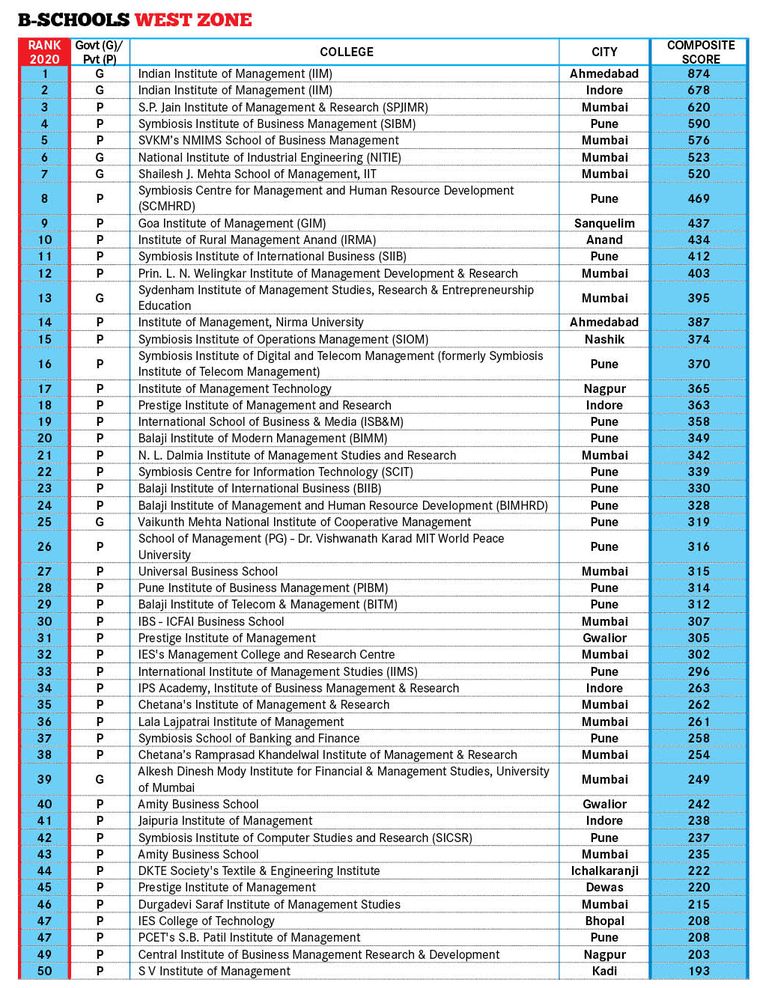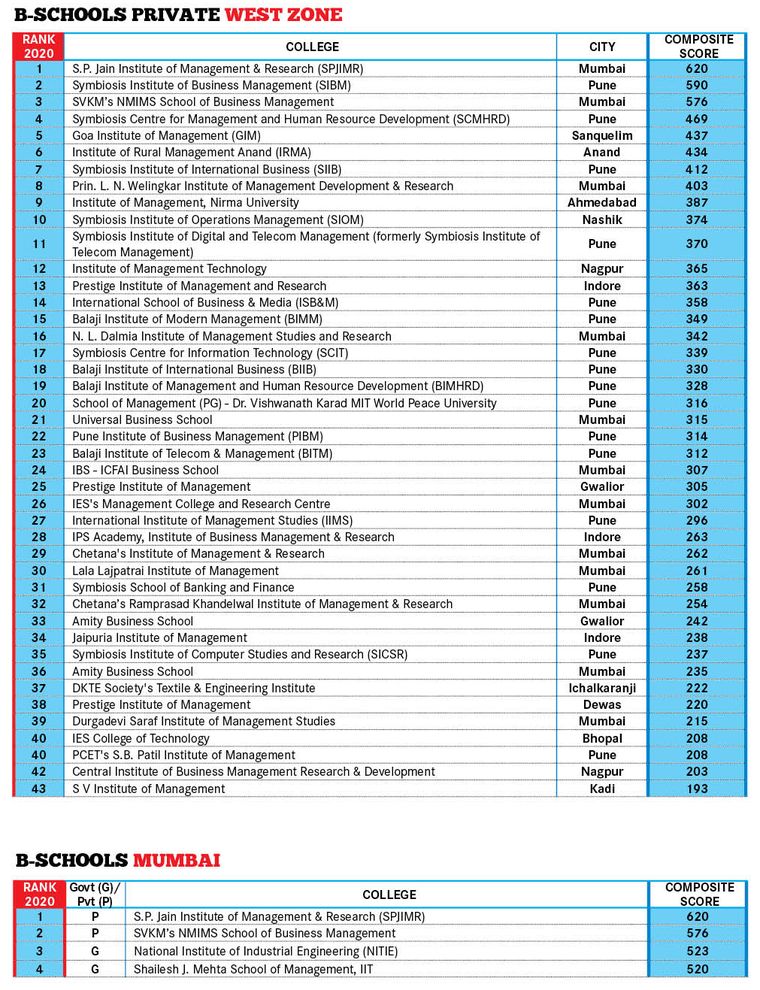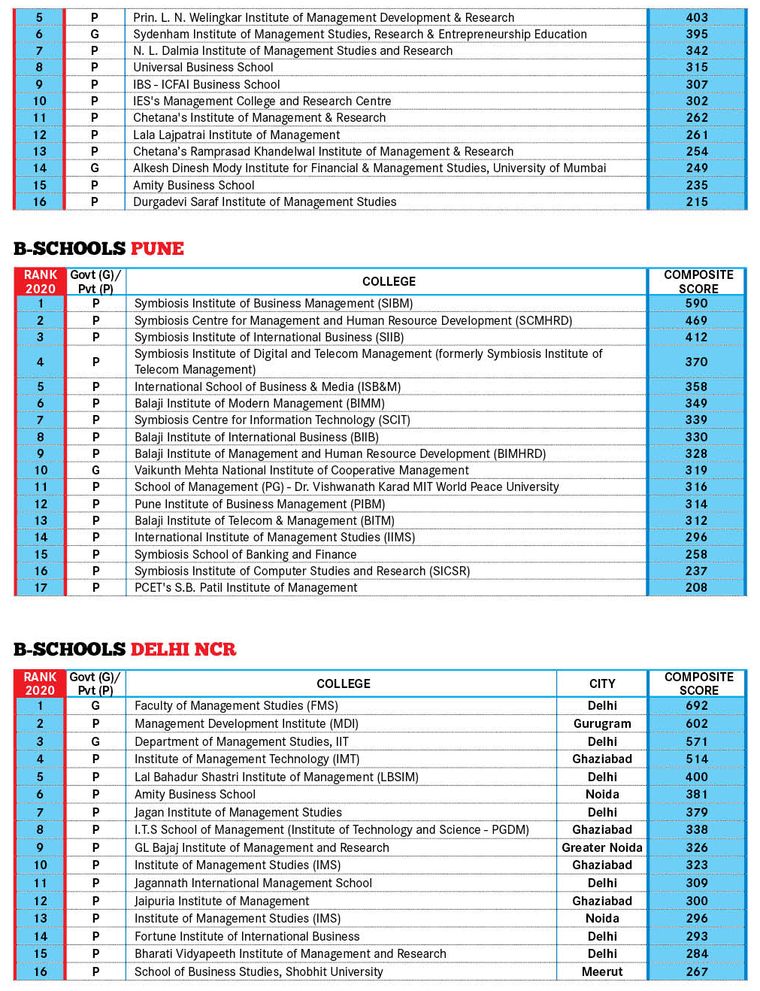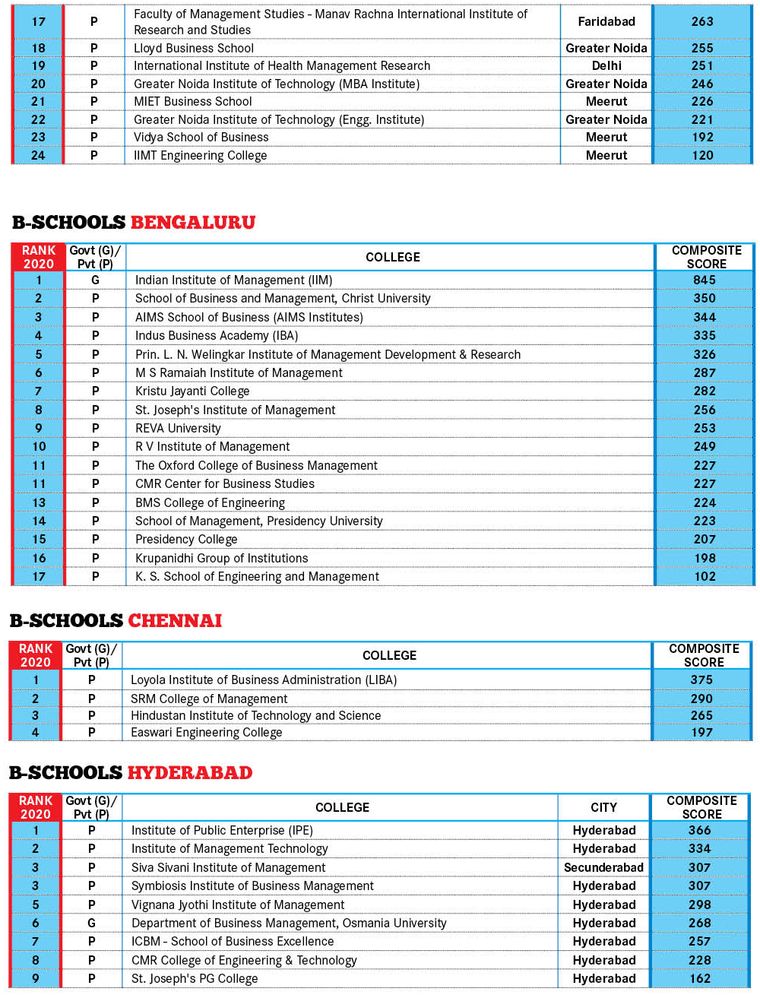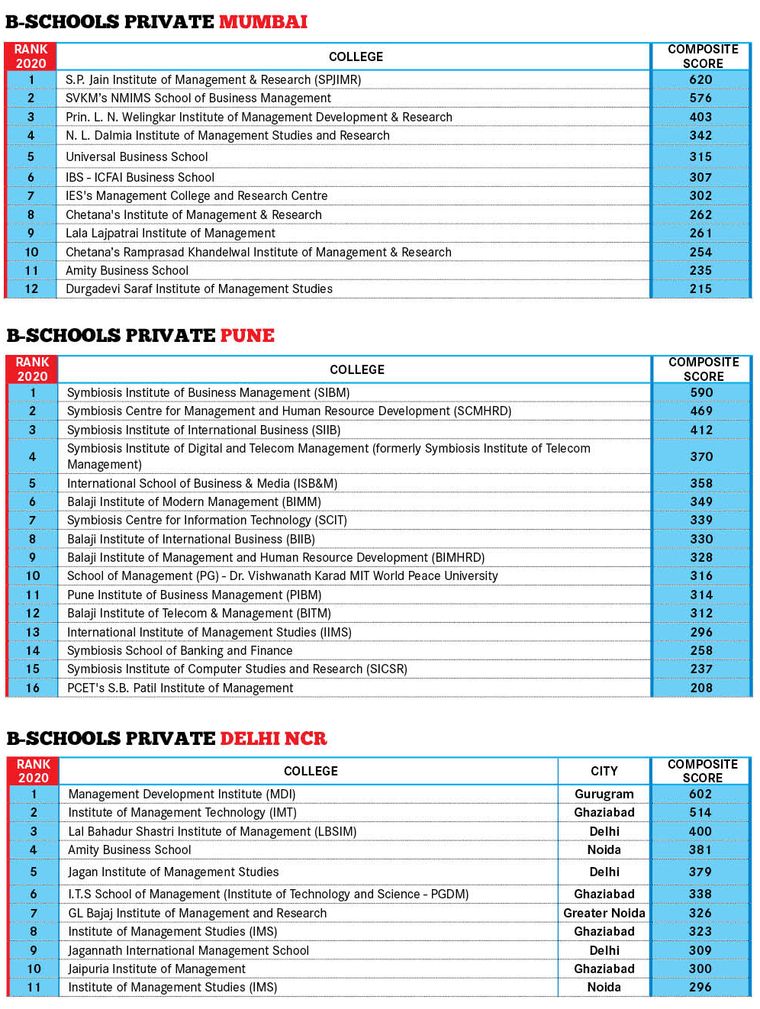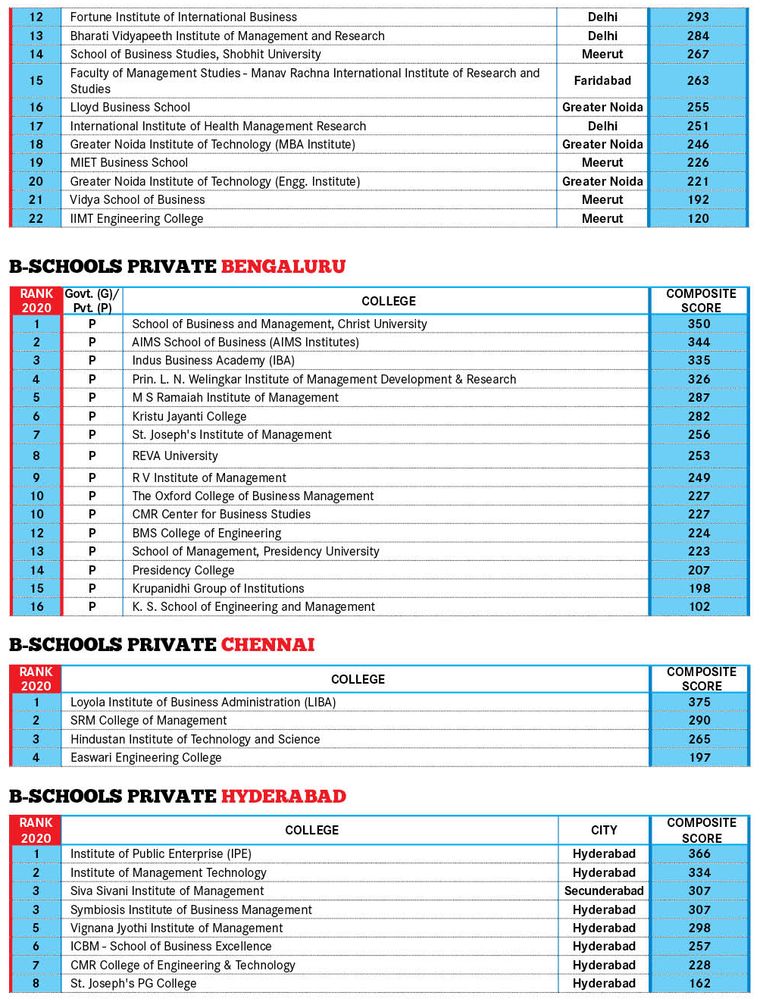VUCA. It is a popular acronym used in b-schools and in management in general. Volatile, uncertain, complex and ambiguous. Till now, students could not really be blamed if they had failed to grasp the gravitas of those four simple words. After all, if you had secured admission in a top b-school, what was really so VUCA about this world? Work hard and you are almost guaranteed the ‘good life’.
So, the Covid-19 batch is perhaps lucky that it got to experience VUCA while still in b-school. The pandemic is not going to be the last “unprecedented event”. In fact, the World Health Organization is preparing for the next pandemic; its health emergencies programme believes the most likely cause will be influenza. And, an economic crisis is never far away; as we now know, the big banks are not ‘too big to fail’.
Not to forget disruptive technology. While disruptive innovation is likely to improve our standard of living, in the short term it would spell doom for businesses which are not agile enough, leading to job losses and the resultant social impact. As we can see, it is not just global crises that can lead to a sea change. And history has taught us that decisions taken in the present can reverberate for years to come.
It is clear then that managers will have a key role to play in the battles to come. But, how do they learn to tackle the unknown? Management students are always taught using case studies that simulate ambiguous or uncertain decision dilemmas, says Prof Venkat Raman, Faculty of Management Studies, Delhi. “The pandemic has only provided a wider canvas for them to learn to cope with uncertainties,” he says. He adds that the faculty quickly learned about the convulsions taking place in corporate strategies—to be quoted as examples in class discussions.
Venkat Raman, who focuses on human resource development and health policy, says that in recent years, management curriculum has adopted lessons from startups and, therefore, it prepares students to respond to complex business scenarios. “Exploring the implications of the pandemic and the uncertainties of the future on work, employment, leadership, business strategies (supply chain, patterns of consumption), risk mitigation, financial health and modelling the organisational responses to crisis are issues that constitute the core of our [virtual] classroom discussion these days,” he says.
Adaptability, the ability to learn quickly, out-of-the-box thinking and conscientiousness are critical competencies for a manager, says Venkat Raman. “Managers of tomorrow also need to be multi-skilled and multi-dimensional,” he says. “Learning management techniques from (American) textbooks is not sufficient. B-schools must make future managers understand their role in the social and economic milieu.”
Prof P.C. Biswal, dean (research and accreditations), Management Development Institute, Gurugram, says that there could not be a more appropriate disruptive force than Covid-19. “B-schools the world over have been teaching how businesses are to be prepared for the changing times, changing environment and economic disruptions,” he says. Now, he says, they can incorporate learnings and experiences of managers during a pandemic in their curricula to teach students how businesses stay relevant during economic disruptions.
“This pandemic has shown us how businesses are killed in such uncertain and black swan type of events,” he says. “At the same time, it is also evident that some other businesses, such as Amazon, Byju’s, Zoom and Unacademy, performed well. B-schools should incorporate changing business strategies of the above businesses to make their courses relevant.”
Sunil Varughese, chief brand and sustainability officer, XLRI, Jamshedpur, says that b-schools must look at the adverse impact of the pandemic on business. “More importantly, the community at large and organisations, in particular, need resilience-building measures to withstand and overcome the adverse effects of black swan-like events,” he says. He adds that future business leaders should develop holistic skill-sets to enhance their “resilience quotient”, which also includes factors like fitness and immunity.
Sumit Kumar, vice president, National Employability Through Apprenticeship Program, TeamLease, says that while hiring from b-schools, HR managers primarily look for skills like leadership, sharp intellect, agility, analytical reasoning, creativity, logical reasoning, adaptability and effective communication. In short, he says, HR managers look for impactful leaders who can shape the organisation’s future.
Usually, a leader is expected to understand the ecosystem, assess future potential, analyse market capabilities and drive the organisation’s journey across all functions, he says. During a crisis, they have to be able to be fast and creative, to think on their feet and come up with alternate business solutions. “Not just this, HR managers also scout for candidates who have strong crisis mitigation skills,” he says.
But, why is management education a must? Is it not possible that even people who never went to b-schools have these skills? “Any employee who has the skills I mentioned and an innovative and solution-driven approach can deal with crises,” he says. “However, having a management education as such, especially from the likes of IIMs, can make the candidate more tactical.”
Kumar feels that b-schools should also look at policy studies and research along with management education to prepare the individual to understand the market better and create future-proof solutions. “Social skills are important, too,” he says, adding that management students should develop strong people skills which will help them when their staff is worried during a crisis.
Students joining b-schools this year are going to have a slightly different experience than what they had envisioned. But, for the second-year students, their experience in b-schools has been akin to a roller-coaster ride. It is highly unlikely that any of them anticipated a pandemic when they started their courses in 2019. But, as required of future managers, they remain unfazed.
Pravar Vir Gupta, a second-year student at IIM Bangalore, says that management education is all about learning to deal with and thrive in uncertain environments. And the pedagogy teaches just that, he says. “The curriculum and the case-based teaching, which is adopted in many of the courses, tell us how companies handled the issues they faced,” says Gupta, adding that activities in the curriculum provide ample opportunities to apply the learnings.
“One term of the PGP course has recently concluded online,” he says. “A few months ago, this was almost unthinkable. It was made possible by constant ironing out of the issues that kept cropping up as we progressed into the term. Such instances give us confidence that we will be able to meet any new challenge.” Courses were modified to suit the online mode, but group projects and presentations were retained, he says.
Gupta adds that professors also took out extra time to interact personally with students outside of class hours to ensure that learning is not inhibited by the remote mode. “Some professors took the online mode as an opportunity to bring in more guest lecturers, including C-level executives of multinational companies; earlier they might not have been able to travel to meet the students in the class.”
Suhasini Sharma, second-year student at XLRI, says that evaluation was tweaked to adapt to online. “Professors have substantially reduced the weightage of exams and are instead concentrating on how we relate to the lessons,” she says. “Substantial weightage is given to term papers, inclusion of real time industry issues as projects and journals on takeaways from classes.”
Neither Sharma nor Gupta seems too downbeat about placements. “While the on-field jobs like sales and marketing are feeling the impact, the pandemic has also opened up tremendous opportunities in fields like technology, consulting, HRM and pharma,” says Sharma. Gupta says that IIMB’s career development office is confident there would be no significant impact on placements.
Indeed, it looks like students, at least at the premier institutes, do not have much to worry about, if you go by the latest placement reports of the top four institutes in THE WEEK-Hansa Research Best B-Schools Survey 2020. At IIMA, of 391 students who sought placement, 388 accepted offers (two were still in process and data for one student was unavailable, at the time of audit); 19 students accepted international offers.
The salary (maximum yearly earning potential) for domestic offers was a minimum of Rs16 lakh, maximum of Rs55.88 lakh and a mean of Rs26.126 lakh. For overseas offers, this was $42,478; $1,80,645 and $84,200, respectively. IIMB reported 100 per cent placements (among students who opted for it), including 18 overseas offers. The average compensations were Rs26.18 lakh (domestic) and Rs32.10 lakh (overseas).
XLRI reported 100 per cent placement with an average annual package of Rs24.30 lakh. The highest offer, which was from overseas, stood at Rs58.5 lakh per annum. FMS, too, reported 100 per cent placement (among students who opted in), with an average package of Rs25.6 lakh per annum and maximum of Rs58.6 lakh per annum. As this happened at the height of Covid-19, there are no concerns of a dip next year.
Kumar of TeamLease says that as the economy is in recovery mode following the unlocking, firms are looking for fresh talent. However, it has to be kept in mind that students at the top b-schools hold a distinct advantage over other MBAs. Says Prof Amit Karna, chairperson, placements, IIMA: “In general, management education may not be that immune in the job market, but the [impact on] the job market for students from premier institutes is minimal.”
The students from these institutes comprise the top 2 to 3 per cent of the management graduates joining the workforce, he adds. “Recruiters have to fulfil their talent needs from somewhere,” says Karna. “So, they fall back on their longstanding partnerships with premier institutes. Campus placements are an efficient way of hiring, so they rely on campuses rather than the open market.”
Alok Shende, an alumni of IIM Calcutta and the founder-director of Ascentius Analytics LLP, a Mumbai-based boutique management consulting firm, says that future managers can be groomed to comprehend uncertainty by quantifying it. He adds that quantitative skill orientation creates a proclivity for managers to be ready for the world that is increasingly led by data and insights.
Despite the best efforts of India’s top b-schools, there may be some shortcomings like the possibility of reduced camaraderie among students, loss of values that students pick up through personal interactions, and, to an extent, even an adverse impact on team skills. These, says Venkat Raman of FMS, are traits that are essential to be a good corporate citizen. He adds that the pandemic has reiterated the need for imbibing compassion, empathy, and humane values. “The pandemic tested the true face of companies in terms of supporting (or abandoning) their employees in crisis,” he says.
Varughese of XLRI says: “Organisations, both small and large, need to proactively react compassionately to help mitigate the pain and sufferings of internal and external stakeholders and society at large during adverse events, thereby contributing to the greater common good.” Perhaps more businesses thinking of the greater good will be a positive outcome of this experience. We can at least hope so.
In the meanwhile, do not be surprised if you come across new courses like “principles of pandemic management” or “work-from-home behaviour”. In management education as in life, change has to be acknowledged and accepted. After all, it is a VUCA world.



